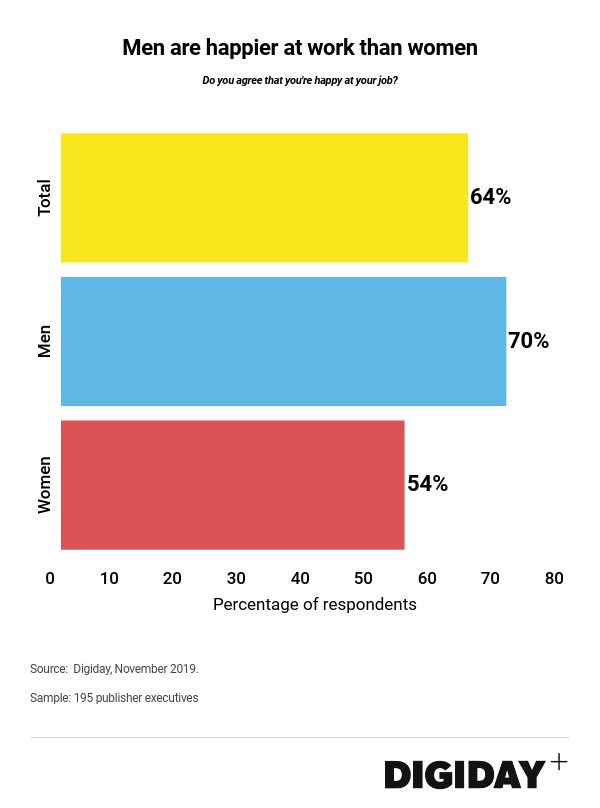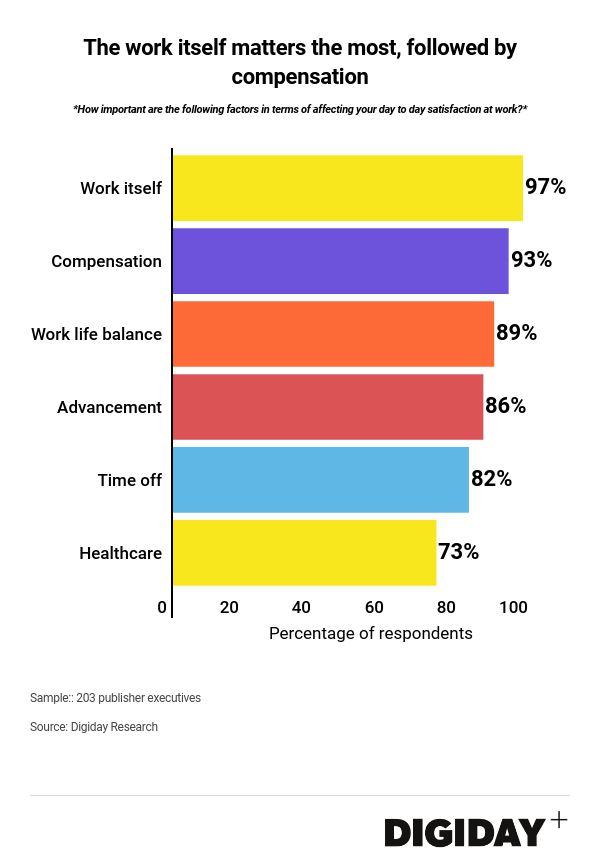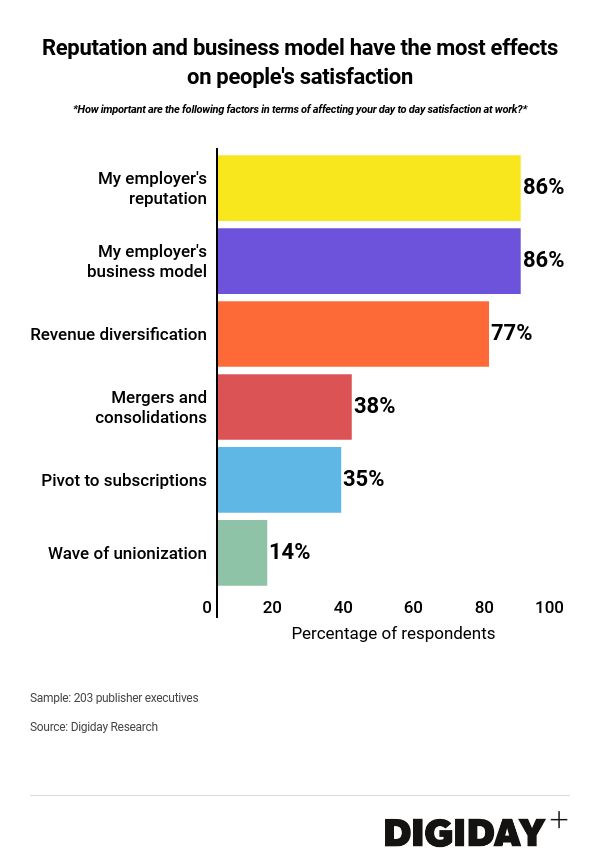
This research is based on unique data collected from our proprietary audience of publisher, agency, brand and tech insiders. It’s available to Digiday+ members. More from the series →
Media workers have plenty to be unhappy about when it comes to their work life, but about 64% of 200 publishing executives surveyed reported that they are happy at their jobs, according to research conducted by Digiday in November.
Just 54% of the women surveyed reported that they were happy, as contrasted with 70% of the men.
For the women at least, that is comparable with the 54% of Americans who said they were “satisfied” with their jobs in an August 2019 Conference Board report.
What makes people happy
It’s not just all about the money. Digiday asked which factors contribute to satisfaction and found that “the work itself” is most important, for 97% of the respondents. Compensation came second for 93% of those polled, followed by work-life balance, opportunities for advancement and then time off.
Internally, the social scene at work and the food offered inside offices didn’t rank as that important.
The work itself mattered for everyone, but the women ranked health care and time off as significantly more important for their satisfaction levels than the men did.
When it came respondents weighing business factors, the biggest element that contributed to satisfaction was their employer’s business model and reputation, followed by publishers’ efforts to diversify revenue. Consolidation in the industry didn’t seem to figure as much of a factor.
More in Media

Digiday+ Research: Dow Jones, Business Insider and other publishers on AI-driven search
This report explores how publishers are navigating search as AI reshapes how people access information and how publishers monetize content.

In Graphic Detail: AI licensing deals, protection measures aren’t slowing web scraping
AI bots are increasingly mining publisher content, with new data showing publishers are losing the traffic battle even as demand grows.

In Graphic Detail: The scale of the challenge facing publishers, politicians eager to damage Google’s adland dominance
Last year was a blowout ad revenue year for Google, despite challenges from several quarters.











